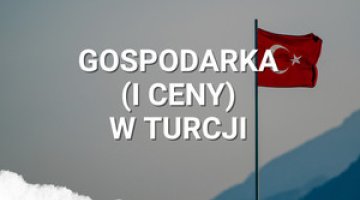Turkey: the opposition unites behind a joint presidential candidate
The Table of Six is an alliance of six Turkish opposition parties comprising two post-Kemalist groups – the centrist and secular Republican People’s Party (CHP) and the nationalist Good Party (İYİ) – and four fringe parties. They held a meeting on 6 March and subsequently announced that they had endorsed Kemal Kılıçdaroğlu (the long-time chairman of the CHP) as its single candidate in the upcoming presidential election (which will be held alongside the parliamentary election). In addition, the alliance outlined its plan for a transition from the current presidential system to a strengthened parliamentary-cabinet system. The Table of Six also agreed that should it be victorious in the presidential election, the vice-presidential posts would go to the chairs of the parties forming the alliance and the popular CHP mayors of Ankara and Istanbul, Mansur Yavaş and Ekrem İmamoğlu.
Commentary
- Kılıçdaroğlu has led the CHP since 2010. Over the years, he has made his mark as an efficient organiser of party affairs. However, his detractors have accused him of lacking charisma and being unable to attract new voters. The decision to put forward his candidacy was preceded by months of negotiations and a short-lived crisis triggered by the collapse of talks on 3 March after Meral Akşener, the leader of İYİ (the second largest party in the Table of Six), refused to endorse the Kılıçdaroğlu. Eventually, Akşener returned to the coalition. By securing the candidacy, Kılıçdaroğlu has proven that he is in full control of his own party and that the CHP is the dominant force in the opposition camp. The latest polls put him more than 10 percentage points ahead of Recep Tayyip Erdoğan if the election were to go to a run-off, although opinion polls published in recent months have repeatedly yielded vastly different results.
- The early parliamentary and presidential elections are likely to be brought forward to 14 May, even though the official constitutional date is 18 June. The Justice and Development Party (AKP) led by President Erdoğan is running in coalition with the co-ruling Nationalist Movement Party (MHP). Support for the two parties has taken a hit from the dire economic situation and fatigue with two decades of AKP rule. The ruling camp may be further weakened by criticism of the handling of rescue and relief operations in the aftermath of the earthquake that devastated the country’s south-eastern regions on 6 February. Under Turkey’s presidential system, it is crucial for the opposition to win the presidential election in addition to the parliamentary election if they are to take power in the country.
- The end of the long-running dispute over the choice of presidential contender is a success for the opposition. However, it may prove to be a major challenge to maintain the cohesion of the Table of Six during the campaign in the face of ideological differences and the strong personal ambitions of individual leaders. Another problem is to win support for Kılıçdaroğlu’s candidacy within the pro-Kurdish Democratic People’s Party (HDP), which is not part of the alliance, without losing the votes of the extreme nationalist electorate (such as İYİ). The ruling camp will undoubtedly try to exploit the opposition’s disunity by leveraging its dominance in the media and its long-standing hold on government structures, the administration and the courts. Heightened political emotions in a polarised society have also had a strong impact on the campaign, which the AKP may use to mobilise its voters.




